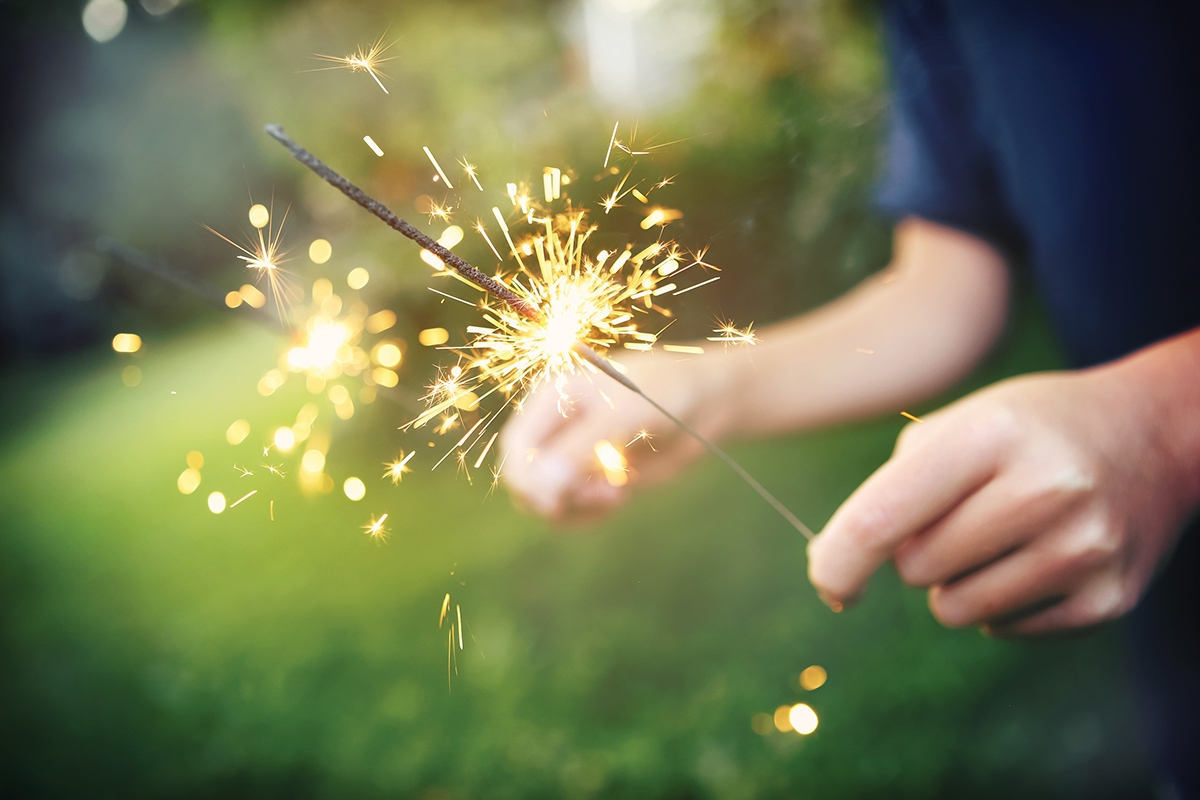Be Burn Aware
7 Ways You Can Burn This Summer, Other Than From The Sun

It’s a hot summer day, and you’ve been vigilant in applying sunscreen every two hours. That means you’re protected from getting burned, right? Wrong. While sunburn is a real threat, the summer sun – and the activities that often go along with it – can hurt you in more ways than one. Ernest Grant, PhD, RN, burn outreach coordinator for the North Carolina Jaycee Burn Center’s internationally recognized Burn Prevention Program, breaks down other summertime hazards that can also cause serious burns.
1. GRILLING: With propane grills, the primary risk for burns is when people are determining if the gas is flowing. “Propane might go out, and people don’t wait long enough for the gas in the area to dissipate, so when they go to relight the grill, there can be an explosion,” Dr. Grant says. If the flame does go out, wait a few minutes before attempting to relight it to allow the gas to dissipate. If you’re connecting the gas to the tank, Dr. Grant recommends spraying soapy water around the connection to see if you get bubbles, which is an indication that you have a gas leak and the connection needs to be tightened. When using it, be sure to keep people – especially children – and animals away from the grilling station, as well as all flammable liquids. “With anything like charcoal lighter fluid, gasoline, or other accelerants, you have to be careful,” he says. “Once you’re done using them, make sure you put the closed containers well away from the grill because of the potential for an explosion. You never want to go back and re-squirt onto the fire once it’s been started, because it can flame up and cause a flash burn.” You should also keep a water supply, such as a ready-to-go water hose, and a fire extinguisher nearby.
2. FISH FRIES AND SEAFOOD BOILS: Fish fries and seafood boils are also popular summertime cookout activities with real potential for burns. “Grease is heating up the temperature to around 300 degrees or higher, which takes less than a second to produce a third-degree burn,” Dr. Grant says. If you’re hosting a fish fry or seafood boil, make sure that people know where you are cooking so they can keep clear. Consider roping off any boiling kettles or large frying pans so guests don’t accidentally get too close.
3. BOATING: “If you have a motorboat, make sure the engine is well-serviced,” Dr. Grant says. The carburetor, an internal part of the engine that mixes air and fuel for combustion, can potentially catch fire. Have a fire extinguisher and life jackets on hand, and, if alcohol is present, a designated driver in case of emergency.
4. LIGHTNING: Although lightning burns are rare, they can happen. If someone is struck by lightning, it can cause a type of electrical burn that creates a feathering pattern on the skin. During the summer, thunderstorms are common and can sometimes arrive out of seemingly nowhere. “If you’re around water and lightning is occurring, you need to get away from it and dry off as quickly as possible,” Dr. Grant says. “If you can hear thunder, you’re close enough to be struck by lightning.” Head to a dry area far from water, or if stuck outside, stay as low to the ground as possible.
5. CANDLES: People might not think about candles in the summer, but severe summer thunderstorms can cause outages that require other light sources. If you lose power, stick with battery-operated lights instead. “Prepare by having flashlights on hand or make sure candles are well-protected so you don’t run the risk of igniting clothing or furniture,” Dr. Grant says.
6. FIREWORKS: Fireworks are usually thought of only on the Fourth of July, but they are also often used for various summertime celebrations, including weddings, birthdays, and barbecues. Dr. Grant warns that only sober adults should handle fireworks, and kids should stay at a safe distance to limit risk of injury. “Also, never attempt to relight a firework if you think you’ve got a dud,” Dr. Grant says. “Lots of people will go and pick up the firework, thinking that if it doesn’t explode they can light it again, but when they pick it up is when it explodes.” Many people think sparklers are more kid-friendly, but Dr. Grant says that they can burn upward of 1,200 degrees and are very difficult to put out – and many people hold them while they’re burning. “Sometimes the sparks coming off of sparklers can ignite your clothing. Stick them in the ground and watch them burn instead of holding them.”
7. PLAYGROUNDS: Although many playgrounds have switched to plastic, some still use metal sliding boards or swings, which heat up in the summer sun. “If young children slide down a metal sliding board, they can sustain significant burns because their skin is very thin,” Dr. Grant says. “Parents should be cautious about where children play to ensure that doesn’t happen.”
What To Do If You Get A Burn
If you notice redness or your skin is hot to the touch, take a cool shower to try to cool your body temperature. Afterward, apply over-the-counter sunburn creams to begin the healing process. “Make sure any lotions you use are alcohol-free because alcohol will dry out the skin and cause more complications,” Dr. Grant says. “Sometimes people will try home remedies, such as applying Vaseline or butter, but those will also worsen the condition.” Take Tylenol or ibuprofen to relieve any pain or discomfort, but if you have a prolonged and persistent fever, pain that won’t subside, or blisters, it’s possible that the burn is deeper than the surface of the skin and you should seek medical attention. Call 911 if the burn involves roughly half of an entire extremity or the person burned is a young child or an older adult. If in doubt, or if you’re dealing with a potentially serious burn, call 911 or go to an emergency department immediately.
UNC Urgent Care
For more minor burns, consider UNC Urgent Care (formerly REX Express Care), which has locations throughout the Triangle.

